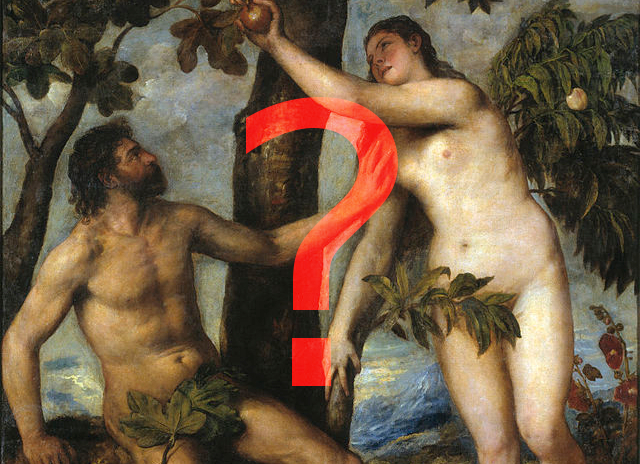From J.W. Hanson’s Bible Threatenings Explained.
“And the Lord God commanded the man, saying: Of every tree of the garden thou mayest freely eat; but of the tree of the knowledge of good and evil, thou shalt not eat of it; for in the day that thou eatest thereof thou shalt surely die.” (Gen. 2:16-17)
The penalty that God intended to threaten to Adam would certainly be found at the very promulgation of the consequences of his sin. But it is nowhere intimated in the account of the first human transgression that he had incurred endless torment.
Adam was told: “In the day that thou eatest thereof, thou shalt surely die,” or, as a literal translation would read, “Dying thou shalt die.” Whatever death Adam died, it was in the day he sinned. What death did he die, in that day?
This threatened death is not (1) of the body, for physical dissolution was the natural result of physical organization, and the death threatened was to be “in the day he sinned.” His body did not die in that day. (2) It was not eternal death for the same reason. He certainly went to no endless hell “in the day” of his transgression. It was (3) a moral, spiritual death, from which recovery is feasible. Paul describe it:
“Having the understanding darkened, being alienated from the life of God through the ignorance that is in them, because of the blindness of their heart.” (Eph. 4:18)
“You hath he quickened who were dead in trespasses and sins.” (Eph. 2:1)
Jesus describes it in the parable of the Prodigal son: “It was meet that we should make merry and be glad; for this, thy brother, was dead and is alive again, and was lost and is found.” (Luke 15:32)
So does Moses:
“See, I have set before thee this day life and good, and death and evil. I call heaven and earth to record this day against you, that I have set before you life and death, blessing and cursing; therefore choose life, that both thou and thy seed may live. (Deut. 30:15-19)
Adam died this kind of death, and no other, “in the day” he sinned. This is apparent from the description of his fate subsequent to his transgression.”
“And unto Adam he said, Because thou hast hearkened unto the voice of thy wife, and hast eaten of the tree, of which I commanded thee, saying, Thou shalt not eat of it: cursed is the ground for thy sake; in sorrow shalt thou eat of it all the days of thy life; thorns also and thistles shall it bring forth to thee; and thou shalt eat the herb of the field; in the sweat of thy face shalt thou eat bread till thou return unto the ground; for out of it wast thou taken; for dust thou art, and unto dust shalt thou return.” (Gen. 3:17-19)
If the reader will carefully consult the accounts of the sin and punishment of Cain, the Antediluvians, the Diluvians, Sodom and Gomorrah, and all the transgressors whose sins are recorded for four thousand years, he will find not a whisper, not a hint, that any but a limited and temporal penalty was received. This is agreed by all scholars.
Note: This chapter is taken from J.W. Hanson’s “Bible Threatenings Explained” from 1883. Some points made by the author may not be perfectly in sync with modern scholarship.
